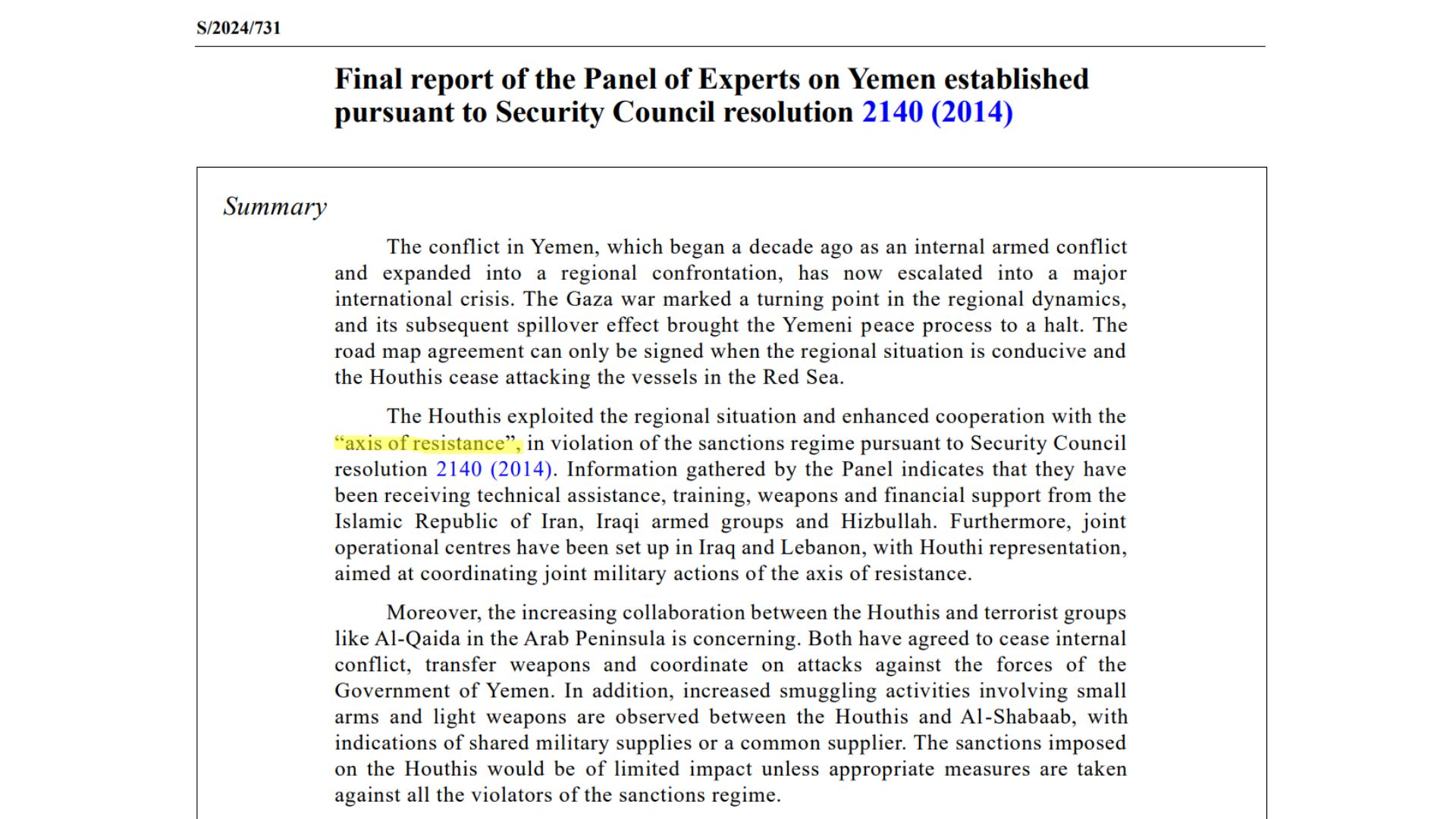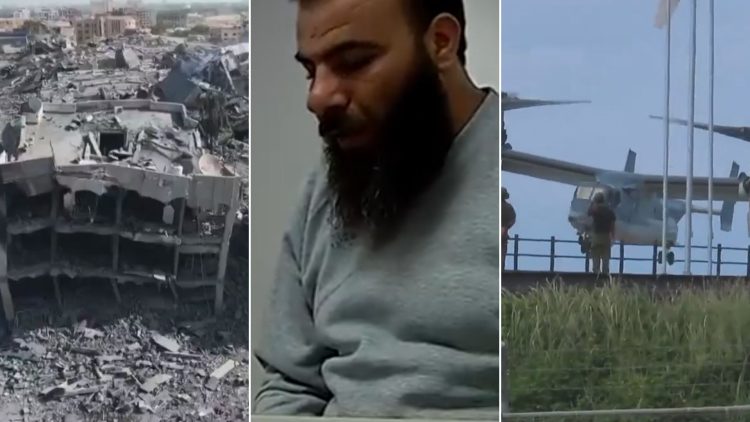With over 2,500 casualties reported in Lebanon due to Israeli strikes and 69 deaths in Israel from Hezbollah attacks, tensions continue to escalate in the region.
Gaza’s Ongoing Battle and Humanitarian Crisis
Israeli forces continue to ramp up their offensive in the northern Gaza Strip, targeting Hamas fighters who have regrouped there.
Recently, Kamal Adwan Hospital was struck by shell fire, injuring patients, including children. Hospital director Hossam Abu Safiya reported that the shells hit critical areas just after a World Health Organization (WHO) delegation had visited.
Despite the damage, the Israeli military denied hitting the hospital, suggesting instead that an explosive device planted by Hamas was to blame.
In another incident, an Israeli airstrike in Khan Younis tragically killed at least eight people, including four children. Additionally, a drone strike reportedly hit a clinic in Gaza that was conducting polio vaccinations, wounding several children. While the Israeli military denied responsibility for the clinic strike, the conflicting accounts have raised serious concerns among health organizations.
United Nations International Children’s Emergency Fund (UNICEF) and WHO have emphasized the urgent need for humanitarian aid in Gaza, especially for children, who face threats from disease, famine, and ongoing bombardments.
Over the past year, Israeli forces have been tightening their grip on northern Gaza, leaving many civilians displaced and desperate for access to healthcare.
The ongoing conflict has created a challenging environment for administering vital vaccinations, with efforts to combat polio now hindered by the violence.
As the conflict escalates, the toll has been devastating: more than 43,000 Palestinians have reportedly lost their lives since the war began, with a significant number being women and children.
Israel Pulls the Plug on UN Relief and Works Agency
Israel has officially pulled the plug on its agreement with the United Nations Relief and Works Agency (UNRWA), the main aid provider for Palestinian refugees in Gaza.
This move, announced Monday, comes after new legislation was passed that aims to cut ties with the Palestinian refugee agency, which Israel claims has been compromised by Hamas.
Despite UNRWA’s insistence that it maintains neutrality, Israel’s government isn’t buying it.
“UNRWA — the organization whose employees participated in the October 7th massacre and many of whose employees are Hamas operatives — is part of the problem in the Gaza Strip and not part of the solution,” said Foreign Minister Israel Katz, quoted from The Times of Israel.
“The UN was presented with endless evidence about Hamas operatives working at UNRWA and about the use of UNRWA facilities for terror purposes and nothing was done about it,” Katz added.
Israel insists that humanitarian aid efforts will continue, but they’ll be working with other international partners, cutting out UNRWA entirely.
Latest UN Report Details Houthis’ Military Evolution
Yemen’s Houthi rebels have come a long way from their humble beginnings as a local armed group to becoming a significant military force, thanks in part to support from Iran, Iraqi factions, and Hezbollah.
According to a new UN report, the Houthis are taking advantage of the ongoing Israel-Hamas conflict to bolster their position within Iran’s so-called “Axis of Resistance” and gain popularity both regionally and beyond.
To show their support for Hamas, the Houthis have been targeting ships in the Red Sea and the Gulf of Aden, disrupting crucial global shipping routes. While they claim to only go after Israeli-linked vessels, investigations suggest they’ve been hitting all kinds of ships indiscriminately.

The situation is looking grim, with UN officials warning that Yemen risks being dragged deeper into the escalating military tensions in the Middle East.
Hans Grundberg, the UN special envoy for Yemen, expressed concern about the potential environmental disasters these attacks could cause in the Red Sea.
Alongside calls to stop the assaults on shipping, UN officials are also demanding the release of UN personnel and civil society members detained by the Houthis.
The rebels recently accused some of these detainees of being part of an “American-Israeli spy network,” a claim that has been strongly rejected by the UN and various organizations.
Since taking control of Yemen’s capital, Sanaa, in 2014, the Houthis have been locked in a civil war against Yemen’s internationally recognized government, which is backed by a Saudi-led coalition.
With the recent escalation in violence following the October 7 attack in Israel, which has led to devastating casualties on both sides, hopes for peace talks seem more distant than ever.
UN Chief Raises Concerns About North Korean Involvement
UN Secretary-General Antonio Guterres is expressing serious concerns over reports of North Korean troops making their way to Russia, particularly in the Kursk border region, where fighting against Ukraine is heating up.
His spokesperson, Stephane Dujarric, emphasized in a statement issued Sunday that the potential deployment of these troops would mark a dangerous escalation in the ongoing war, urging all parties to avoid internationalizing the conflict.
US intelligence suggests that around 10,000 North Korean soldiers are already in Russia to support President Putin’s efforts against Ukraine, while Ukraine estimates that the number could be as high as 12,000.
ISW’s @georgewbarros spoke with the BBC’s @AmroliwalaBBC on the 10,000 North Korean soldiers now supporting Russia’s invasion of Ukraine. (CC: @bbc_olga_m)
Watch: pic.twitter.com/MrIKlBqnbg
— Institute for the Study of War (@TheStudyofWar) October 29, 2024
Many of these troops are reportedly being trained in multiple locations across Russia, ready to join the battlefield.
In response, Ukrainian President Volodymyr Zelensky has called for permission from Western allies to launch preemptive strikes on training camps to stop these soldiers before they can engage in combat.
The situation is drawing attention not just from the US and Ukraine but also from South Korea, which is considering how to respond to North Korea’s military involvement in Russia.
Both Washington and Seoul have urged Pyongyang to withdraw its troops, but as of now, neither Russia nor North Korea has confirmed the troop deployments.
US Sends B-1B Bomber to Korean Peninsula
The US conducted a trilateral military drill with South Korea and Japan on Sunday, deploying a long-range B-1B bomber in response to North Korea’s latest missile test.
On Thursday, North Korea launched the Hwasong-19 intercontinental ballistic missile (ICBM), which flew higher and longer than any of its previous tests.
North Korean leader Kim Jong Un touted this launch as a necessary military move against perceived external threats.
In Sunday’s military drills, the US bomber trained alongside fighter jets from South Korea and Japan near the Korean Peninsula, showcasing a united front and readiness to tackle North Korea’s advancing nuclear capabilities.
Aircraft from the 🇺🇸🇰🇷🇯🇵 conducted a Tri-Lat escort flight of U.S. bombers in the Indo-Pacific, Nov. 3, 2024. Two 36th Fighter Sqdrn & @51stFW U.S. F-16s with four 8th Air Wing @JASDF_PAO_ENG F-2s & four 11th Fighter Wing @ROK_MND F-15Ks to escort one @usairforce B-1B Lancer pic.twitter.com/1Nx0Tqkesf
— U.S. Forces Korea (@USForcesKorea) November 4, 2024
This was the second such training exercise this year.
The US often responds to significant North Korean missile tests with displays of military strength, such as sending bombers and naval vessels to the region.
In turn, North Korea usually reacts strongly, seeing these actions as threats and escalating tensions further with its own weapons tests.
While the recent Hwasong-19 test indicated progress for North Korea’s missile program, experts note that the country still faces technological hurdles before it can effectively launch nuclear strikes against the US mainland.
Many observers believe this missile test was a strategic move by North Korea to capture American attention, especially with the upcoming US presidential election and amid international scrutiny over its military collaboration with Russia.
Hungary’s Leader Warns Europe About Trump’s Influence
Hungarian Prime Minister (PM) Viktor Orban has thrown some serious shade on Europe’s current approach to supporting Ukraine, suggesting that everything could change if Donald Trump wins the US presidency again.
Orban said Sunday that Europe can’t shoulder the burden of the war on its own and seems to think that a Trump presidency would lead to a more peaceful stance regarding Ukraine.
Orban, who has been vocal in his opposition to military aid for Ukraine, is backing Trump in his bid to defeat Democratic candidate Kamala Harris in the upcoming election.
The Hungarian PM claimed that if America shifts towards a “pro-peace” agenda, Europe will need to follow suit and reassess its “pro-war” stance.
With a European Political Community meeting happening soon in Budapest, Orban emphasized that the discussions will revolve around how Europe needs to adapt if American policy changes.
He’s also hinted at the jitteriness across Europe regarding the US election’s impact on the war in Ukraine and overall security in the region.
Orban’s close ties to Russia and his opposition to Ukraine aid have ruffled feathers in Brussels, but he sees Trump as a potential “chance for peace.” He even reached out to Trump to wish him luck ahead of the election, signaling his support for the former president’s policies.
Japan Grounds V-22 Ospreys Again
Japan has hit the pause button on its fleet of V-22 Osprey aircraft once again after a recent incident during a joint US military exercise.
On October 27, one of the Ospreys was attempting to take off when it unexpectedly tilted, causing the left wing to touch the ground. Fortunately, no one was injured, and the flight was aborted without any serious consequences.
An Osprey of Japan’s Ground Self Defense Force suffered partial damage when it lost balance while attempting to take off from the nation’s island of Yonaguni on Oct. 27. The V-22 was on a joint field training exercise with U.S. forces that began on Oct 24.pic.twitter.com/qxgeDjf41W https://t.co/BizHB1T1Sr
— 旧 裸のブラタモリ少年倶楽部 ★ YOU、僕のソーセージを食え!?#萩生田ヒロミ とうとう出たね… (@WaratteDappiCX) October 29, 2024
This marks the first major incident for Japan’s V-22 fleet since a tragic crash last November, which resulted in the deaths of eight service members and led to a lengthy grounding of Ospreys in both Japan and the US.
Although the aircraft resumed operations earlier this year, the V-22 has faced scrutiny, especially from residents in Okinawa, over safety concerns.
Defense Minister Gen Nakatani assured reporters that the Ospreys are generally safe but emphasized that ensuring flight safety is a top priority.
As the investigation into the recent incident unfolds, Japan’s fleet of over a dozen Ospreys will remain grounded, with support from the Pentagon’s V-22 joint program office.










COMMENTS